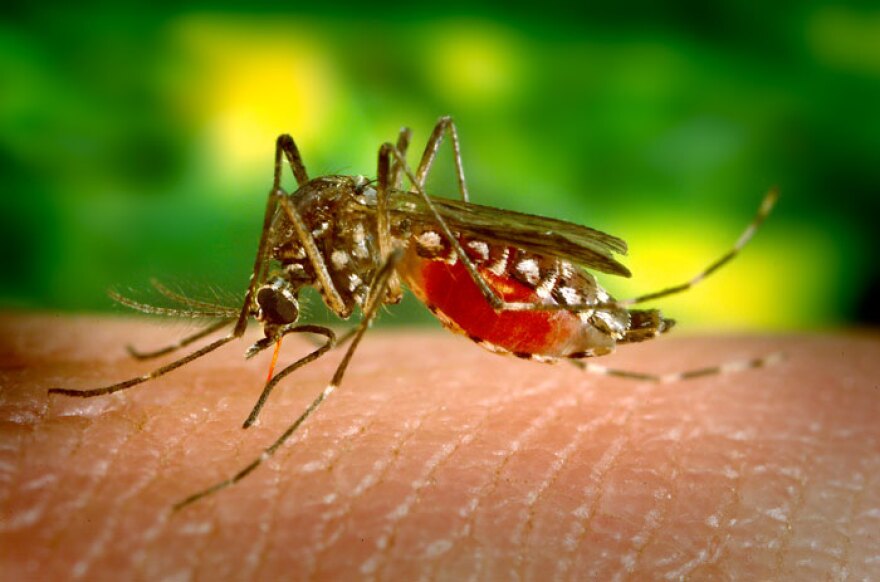From Texas Standard:
In Southeast Texas, mosquitoes aren't exactly beloved. So it's curious that biotech company Oxitec is planning to release millions of them in Harris County.
Gabriel Hamer, associate professor of entomology at Texas A&M University, says the company plans to do so with the ultimate goal of reducing the number of mosquitoes in the area.
"They have what they consider a self-limiting gene – these males would be mating with wild females, and then the offspring would be less fit or unable to live as long," Hamer told Texas Standard. "Ultimately, their population should decline.
He said that the Environmental Protection Agency has approved Oxitec's release of 750 million genetically modified male mosquitoes into the Houston area. Oxitec also plans to release them in the Florida Keys. Both mosquito releases are pending approval from local officials.
The company is targeting the Aedes aegypti mosquito, a species Hamer said is less common in Harris County compared to the over 80 other mosquito species in Texas. Hamer said Aedes aegypti is somewhat "man-made" – the species adapted to thrive in urban environments and doesn't play as big of a role in local ecology. That's unlike other species that are important pollinators and food for bats.
"If we were to eliminate or eradicate Aedes aegypti from, say, Harris County, it'd be hard to find a negative cost of that," Hamer said.
Hamer admitted that there are still a lot of unknowns with this type of mosquito eradication. But it has been done successfully in other counties. That's a sign, he said, that it could be done successfully here, too.
"There is some precedence for Oxitec demonstrating some evidence it could be working in other places, so this isn't a complete first experiment," Hamer said.It could also be a better alternative to other forms of mosquito eradication like adulticide, which Hamer said can kill beneficial insects in addition to the Aeges aegypti mosquito.
Copyright 2020 KUT 90.5. To see more, visit KUT 90.5. 9(MDAwMTM1NDgzMDEyMzg2MDcwMzJjODJiYQ004))

